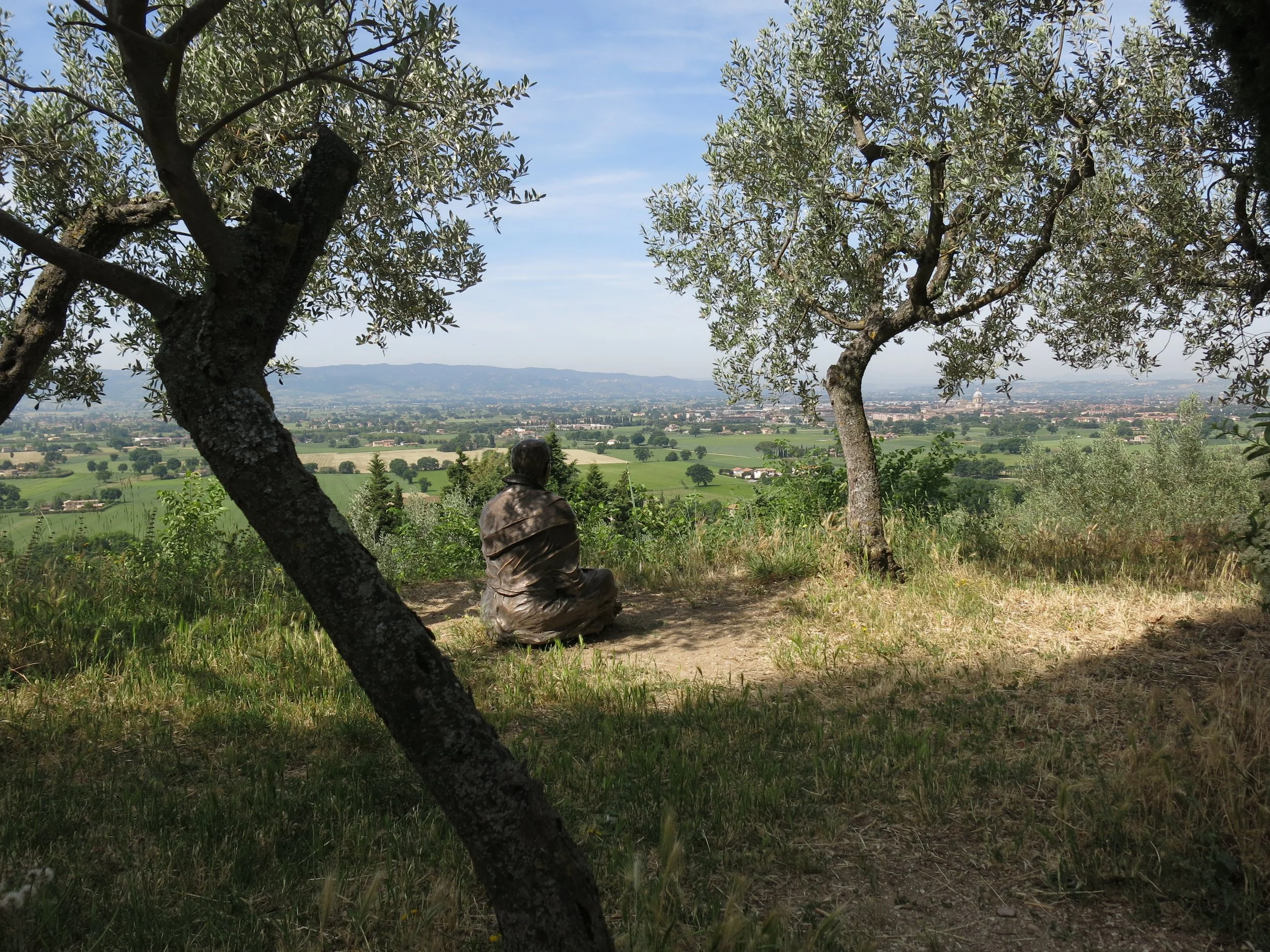Life’s Greatest Wonder
Why did God choose a zealous Jew, a man who persecuted Jesus’ followers, to write half the New Testament? The Apostle Paul must have asked himself dozens of times, if not hundreds, why in the world God would invade his life in order to save it?
“So then, I thought to myself that I had to do many things hostile to the name of Jesus of Nazareth. And this is just what I did in Jerusalem; not only did I lock up many of the saints in prisons, having received authority from the chief priests, but also when they were being put to death I cast my vote against them. And as I punished them often in all the synagogues, I tried to force them to blaspheme; and being furiously enraged at them, I kept pursuing them even to foreign cities.”
Maybe, if you are a Christian, you have wondered why God would choose you to live the life you have lived. Warts and all. Mistakes and all. Sins and all.
John Newton, slave trader who later in life became a Christian wrote the hymn “Amazing Grace.” He got personal, stating his wonder by referring to himself, that God would “save a wretch like me.” You and I sing the words, but not everyone is convinced by looking at their life that they are a wretch, a person in need of saving.
Before he met Jesus, Paul believed he lived an exemplary life. He considered himself better than most people and certainly a model of religious devotion.
Just like Saul of Tarsus, whose name Jesus changed to Paul, God continues to invade lives and change names, redirect their story, and grow people’s character so that they fulfill His purposes for their life.
Paul Explains the Problem of Sin
The Apostle Paul wrote from Corinth to Christians in Rome more than 2,000 years ago what some have called the “most influential letter ever written in history.” The fact that this book among the 27 books of the New Testament have survived centuries of attempts to destroy and diminish both the words and the message of the entire Bible attests to the power of God to preserve His timeless truths.
Perfectly suited to the role God gave him, steeped in Old Testament teaching, as a Jew, Paul had religious heritage and credentials, all the way back to Abraham––Father of the faithful. In God’s order, Paul was uniquely qualified to contrast the legalism of the Jewish religion, the emptiness of paganism, and the futility of trying in one’s own strength to do good works. Paul’s life-changing experiences bore witness to his personal relationship with Jesus Christ.
In Romans, we see the clearest and most compelling argument for salvation by grace alone, through faith alone in Jesus Christ alone.
Paul declares that the Law can’t save. Religion can’t save. Works can’t save.
Sin deceives and makes prisoners of everyone who serves sin. Sin is the Big “I” that says “No” to God. (See Psalm 53).
Wretched man that I am! Who will deliver me from this body of death? Romans 7:24
What benefit did you reap at that time from the things you are now ashamed of? Those things result in death! But now that you have been set free from sin and have become slaves of God, the benefit you reap leads to holiness, and the result is eternal life. For the wages of sin is death, but the gift of God is eternal life in Christ Jesus our Lord. Romans 6:21–23
I am a sinner not because I sin. I sin because I am a sinner.
Before you became a Christian, you didn’t care about sin. In fact, you didn’t want to acknowledge sin, much less call sin by that name.
Wrongdoing. Mistakes. Poor choices. Weaknesses. Misjudgment.
Guilt and blame enter the picture.
Alas, sin by any other name is still sin.
Paul says that while keeping the Law cannot save anyone since no one keeps the law perfectly, God gave the Law to lead people to understand what sin is, acknowledge its presence in one’s own heart, and admit its damaging effects.
People prefer to categorize and alphabetize sin: Abortion, abuse, addiction, adultery, alcoholism, anger … Naturally, you and I tend to think in terms of BIG sins vs. little sins, like “white lies” instead of telling the truth.
While reading and studying the Bible ought to make you and me uncomfortable, you and I instinctively know we miss the mark.
We do not obey perfectly, at all times and in every circumstance what the law makes plain. God’s law marks the boundaries for behavior, ruled from the heart, both for my benefit and to protect others.
Sin in a Believer’s Life
You and I like to adjust ourselves according to our surroundings, our culture, and other people’s impressions of us. But Paul understood after he met Jesus that each individual who comes to God must admit the problem of sin and own their part in it.
“For I know that nothing good dwells in me, that is, in my flesh; for the wishing is present in me but the doing of the good is not.” (7:18).
Some people like to think that when you become a Christian, you stop worrying about sin.
The truth is, when you become a Christian, you start worrying about sin.
Right in the middle of the book of Romans, Paul deals with the problem of sin in a believer’s life. Being saved from the penalty for sin is part of why Jesus died. Being saved from the power of sin gives believers the freedom to choose not to sin.
After a person receives God’s forgiveness, a Christian can still sin, but what changes in the heart is a desire not to sin.
Rather than feel uncomfortable about my own sin, I prefer to compare myself to others, where I can sort myself according to my own standards. My standards vary from the standards others establish for themselves.
My friend’s house looks ready for a photo shoot at any given moment. My choices reveal a lower standard––not ready for prime time. Yet I feel comfortable in standards I create for myself.
My heart, Christ’s home, God makes heart-houses clean according to His standards, from the inside out.
Ceiling inside St. Mark's Basilica in Venice, Italy
Deliverance from the power of Sin
Romans 8 captures the thrill of victory over sin versus the agony of defeat by sin. After the Holy Spirit indwells a believer’s life, that person has the power to choose not to sin.
Changes come from the inside out. Beginning with the heart, moving to the mind, God starts cleaning house.
The mind set on what sinful nature desires will naturally live a life controlled by sin. Paul says this mindset is hostile to God. “It does not submit to God, nor can it do so. Those controlled by the sinful nature cannot please God” (Romans 8:8).
The mind set on the Spirit, however, chooses to live to please God. Paul even submits that Christians are “obligated” to honor God by consciously choosing not to be controlled by their sinful nature.
Do believers choose this perfectly? Are Christians immune from sin? No.
It’s important to remind ourselves that Paul is writing this letter to “brothers,” fellow-believers in Jesus Christ, admitting the struggles even Christians face in this present life.
The power to choose not to sin and the aspiration to please God is there, on the inside, in our hearts because of the Holy Spirit. Jesus said His Spirit would indwell and enable believers to live a life free from bondage to sin and its destructive effects.
When I choose to sin, it’s on me. When I resist temptation to sin, God strengthens me to fight another day. Another battle, continued struggles to resist being deceived by sin, and even suffering may await those whom God loves, but Paul reminds believers that we are more than conquerors because of Jesus Christ.
Romans 8 ends with questions to consider, questions Paul asked himself before he penned these questions for readers of his letter to the Romans.
READ: Romans 8:31–30
Paraphrased: Will anything I do make God forsake me?
Sin in a believer’s life will make God seem distant and can even lead believers to question His existence and His love.
Yet sin cannot change the reality of a love that will not let go.
Paul describes his own wonder of being seen, known from the inside out, and unconditionally loved by God as a unique individual.
Paul emphasized that nothing can separate those God chooses from His love displayed in the life, death, burial and resurrection of Christ Jesus.
No one knows this side of eternity why God chose Paul, or why God would choose you or me, but when God chooses you, He chooses you forever.





